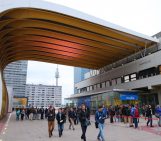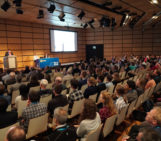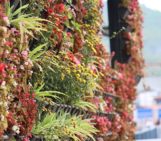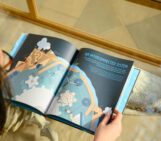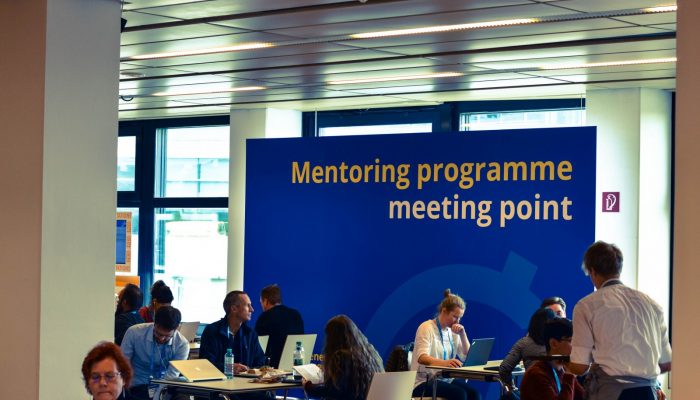
With more than 16,000 participants, 5,000 oral presentations, 9,000 posters and 1,200 PICO presentations, the EGU General Assembly can be an overwhelming experience for any scientist, whether it’s your first time or 10th time attending. However, you can make conference networking a bit easier by signing up for the EGU 2020 Mentoring Programme!
This mentoring scheme aims to facilitate new connections that may lead to long-term professional relationships within the Earth, planetary and space science communities.
Mentees are matched with a scientist who has attended the General Assembly at least two times (mentor). Through this programme, mentees can receive insight on how to navigate the conference, network with conference attendees, and exchange feedback on professional activities and career development.
On the other hand, there are several benefits of being a mentor, including getting to expand your network, trade ideas and share your experience with novice conference attendees, students, and early career scientists.
We’ve asked a few former General Assembly mentors to talk about their experience with the programme and share their highlights. If these interviews inspire you to get involved with our mentoring programme, you can learn more about this initiative, and how to register, here. The deadline to sign up is 8 March 2020.
Anouk Beniest, postdoctoral researcher at the Vrije Universiteit Amsterdam, the Netherlands
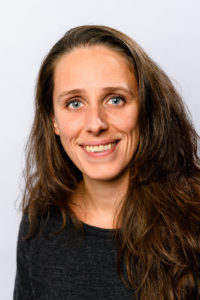
“I am always curious to meet new people and the mentoring programme is the perfect opportunity to meet enthusiastic and talented new people.”
What motivated you to take part in this programme as a mentor?
I remember that when I was a first-timer at the EGU General Assembly I felt a bit overwhelmed by its size. Luckily, I had a PhD from my institute who took me along for a few days. She taught me a lot about how to plan my day and how to decide what to do and where to get lunch. So from a practical point of view I think it is very useful, as a first-timer, to have someone that can guide you through this big conference. Besides that, I am always curious to meet new people and the mentoring programme is the perfect opportunity to meet enthusiastic and talented new people.
What were some of the highlights of your experience as a mentor?
Seeing your mentees communicating their scientific knowledge to the bigger audience is really cool to see. Also introducing them to my own network was always very nice. The community is very supportive of the mentoring programme, so (I hope) the mentees feel very welcome. I have been very lucky with my mentees, because they were all very motivating and inspiring and they affected me with their positive energy. With some of them I am even in contact with, which is definitely one of the highlights of being a mentor!
Did you learn something or benefit from being a mentor in this programme? If so, what?
In my case, all my mentees were early career scientists, so the biggest benefit is that I now have a couple of new, very cool early career scientists in my network! In addition, as a mentor, you not only meet your mentee, you also meet their network. So one of the benefits for me was to get in contact with different research groups through the mentees. I think this is a great power of the mentoring programme.
Roelof Rietbroek, postdoctoral researcher at the University of Bonn, Germany
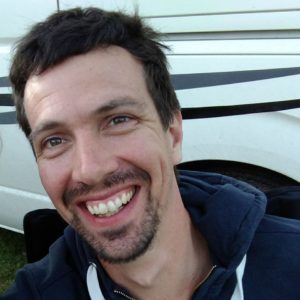
“The EGU is much more than just attending talks and posters, and there is much to gain from interacting with colleagues and visiting/organising interesting short courses.”
What motivated you to take part in this programme as a mentor?
Over the years, I’ve realised that the EGU is much more than just attending talks and posters, and there is much to gain from interacting with colleagues and visiting/organising interesting short courses. The mentoring scheme adds an enjoyable flavour to the mix. Besides supporting a welcoming culture, it’s interesting to hear from first-timers how they perceive a big conference, and I take pleasure in sharing my experiences and network with them.
What were some of the highlights of your experience as a mentor?
It’s the small things. For example, my mentee told me quite a few things about the history of Palau last year. I enjoyed those casual conversations.
Did you learn something or benefit from being a mentor in this programme? If so, what?
From the philosophical side, it reinforced the idea that we should invest a bit of time to listen, and not just to our peers and science superstars.
Interviews by Olivia Trani, EGU Communications Officer

